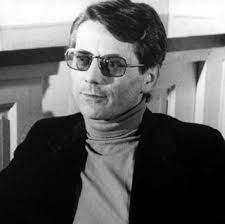Certeau, Michel de

Bio: (1925-1986) French philosopher. Michel de Certeau became a Jesuit priest in 1956, four years later he received his doctorate from the Sorbonne and then taught in Paris and San Diego. He applied the methods of Jacques Lacan's psychoanalysis to the study of the history of religion in his book The Writing of History (1988, in French 1975). He proposes the idea that history was written in a way to legitimize the political power of elites in Europe and to un-write the traditions of native people who were colonized by Europeans.
Inspired by student and workers' protests in 1968, he began studying everyday forms of resistance. He did studies in various areas of sociology of everyday life, and his most famous book on the subject is The Practice of Everyday Life (1984, in French 1980). Certeau studies how people, in their everyday life, change the meanings and practices of socially established rituals and symbols. In his theoretical approach, the most important difference is between the concepts of "strategy" and "tactics". Institutions and other power structures produce and implement strategies, thus acting as producers of the symbolic order, while, on the other hand, individuals act as “consumers” who use everyday tactics in specific environments and circumstances. He gives the example of a city where authorities, institutions, and companies have shaped the look and the way it people should behave in it, while, in everyday life, ordinary people use tactics to avoid these rules of conduct.
The practice of "wriggling" (la perruque) at work functions in a similar way. Workers at work behave as if they are working, doing nothing, or doing something that is not related to the job itself. Certeau believes that everyday life functions by occupying the territory of others, using rules and products that already exist in culture, but in an inventive and original way. Those in power use strategies to create rules, while ordinary people use tactics to use those same rules as a means of creative resistance to power structures. Certeau believes that all strategies and tactics must be understood as "spatial practices", that is, they are always localized in space. There are two main practices by which people locate themselves in everyday life: appropriating spaces and names and telling stories about those spaces. Through these two practices, individuals give direction and meaning to their behavior. Certeau also studied migrants in Paris, as well as mysticism in Christianity.
Fields of research
Actors Christianity Consumerism Culture Customs, Social Everyday Life Immigration Institution and Organization Power, Political Protests Psychology Religion Sign and Symbol Work Working ClassTheoretical approaches
Approach of Everyday's PraxisMain works
Le mépris du monde (1965);
La Prise de parole: pour une nouvelle culture (1968);
La Culture au Pluriel (1974a);
Le Christianisme éclaté (1974b);
L'Écriture de l'histoire (1975);
L'Invention du quotidien (1980);
La Fable mystique: XVIe et xviie siècle (1982);
L'Ordinaire de la communication (1983).
Works translated into English:
Culture in the Plural (1998, in French 1974a);
The Writing of History (1988, in French 1975);
Practice of Everyday Life (2011, in French 1980);
The Mystic Fable, Volume One: The Sixteenth and Seventeenth Centuries (1995, in French 1982);
Capture of Speech and Other Political Writings (1997).

